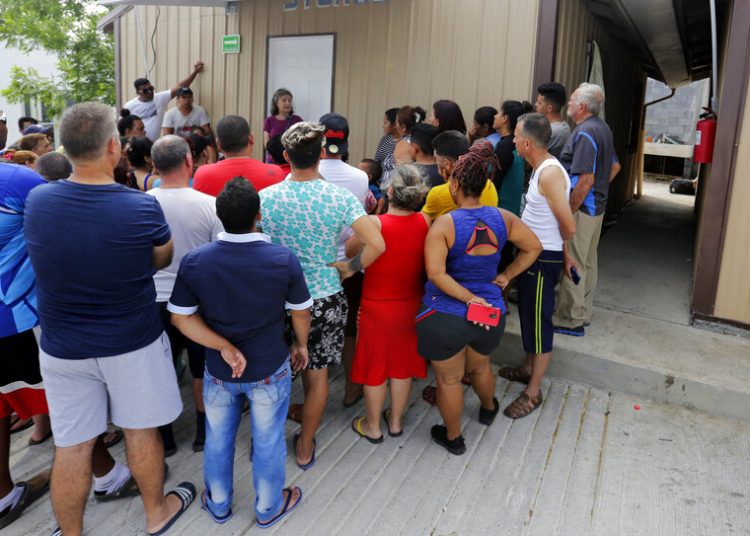Hundreds of asylum seekers, many of them Cubans, remain detained indefinitely in immigration prisons in Louisiana, the U.S., waiting for an answer to their request, reported a lawyer who defends some of those cases, Luz López, in an interview with EFE.
“About a year ago, we noticed that the Department of Homeland Security (DHS) through ICE (Immigration and Customs Enforcement Service) was sending many people (to jail), especially men, who had given themselves up at a point on the border where this migration is located in order to ask for political asylum,” said López.
The expert from the Southern Poverty Law Center (SPLC) indicated that “many of them” are Cubans and are being transferred to prisons ―some of which are private and managed by the GEO Group― in Louisiana, which belongs to the ICE region in New Orleans, which also serves Mississippi, Tennessee, Alabama and Arkansas.
According to the lawyer, her group plans to file a complaint “because these people are not being given the opportunity, their constitutional rights to a free and fair process to request conditional freedom are being violated.”
The lawyer warned that in these prisons many of the detainees suffer “medical problems, very bad psychological conditions.”
“Many of them have not committed a crime and are held there for months as if they were common criminals,” said López, who explained that there are mechanisms through which asylum seekers can be released on bail or probation.
“What we have found and the cause of our demand is that in this ICE region…, all ICE officers who are part of the structure through which it is determined whether someone goes out on parole, on probation, or not, have been instructed, have been told, that they should not grant conditional freedom to the people who ask for them,” she stressed.
López recalled that in 2018 the New Orleans Regional Office granted parole to only two detained asylum seekers and 125 others had been ruled out, making it the region where “the largest number of requests for parole” was denied in the country.
“The percentage of those who are denied probation is almost 100%,” she added.
For the lawyer, one of the most dramatic cases is that of some 150 Cubans who remain in detention centers and whom, she said, “are treated differently.”
“We have clients who have been told that they don’t not want to release Cubans on parole (bail), because they know that they can become permanent residents and citizens much faster than others,” said López.
For the expert, this shouldn’t “be strange,” since the policy of the Donald Trump administration is “to try to prevent immigrants from Latin America and other non-European countries to continue arriving and undergoing legal processes, such as seeking asylum.”
The SPLC website publishes testimonies of several Cubans who entered the country legally in search of asylum and remain in detention centers.
One of the stories is that of Raúl, whose identity was changed to protect him, who appeared in August 2018 before immigration officials in McAllen, Texas, where he was transferred to the Pine Prairie ICE Processing Center.
“I cry all day, every day,” admitted Raúl, whom is described as a young man hoping to teach soccer in the United States.










